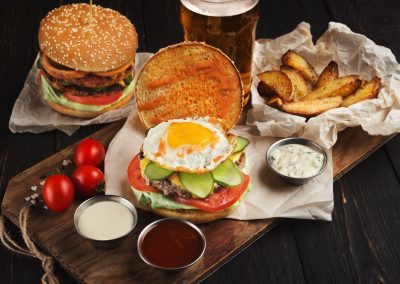Cholesterol
Dr. Dhiren Shah guides you through the process of cholesterol with a complete understanding what it is and does and how to get rid of it or control it.
CIMS Hospital is known as the best heart failure hospital led by Dr. Dhiren Shah – amongst the best cardiac surgeons in Gujarat and recognised amongst the top heart failure doctors in India.
What is Cholesterol ?
Cholesterol is a lipid like, waxy substance found in our blood. Cholesterol, as very few know of is important for formation of healthy cells in our body and synthesis of hormones, vitamin D and other substances. Increased intake of bad cholesterol increases the chance of heart diseases.
What is the diganose of Cholesterol ?
- Cholesterol level can be diagnosed only by blood test under lipid profile.
- Person having age above 30 years should get their cholesterol checked regularly.
- If there is any history of high cholesterol in the family, it is advised to get cholesterol checked at a younger age and every year.
How do you control Cholesterol ?
- Avoid fatty food
- The fat consumed should be less than 30% of total calories.
- Fibre rich diet
- Food rich in fibre are easy to digest, maintains a healthy body
- Exercise
- Exercising increases HDL and maintain good health along with healthy heart
- Medications
- Certain medications like fish oil, fluvastatin, lovastatin helps in lowering LDL and triglycerides.
What are the types of cholesterol ?
Cholesterol can be classified into 5 types.
Total Cholesterol
- It is sum of HDL, LDL along with other lipid components present in our body.
- In adults, total cholesterol level less than 200mg/dL is considered normal.
High Density Lipoprotein Cholesterol (HDL)
- Considered as good cholesterol
- Important for our body
- Prevents heart disease
- Removes bad cholesterol from the body
- More than 60mg/dL of HDL is considered good for body whereas, below 40mg/dL is bad for the body.
Low Density Lipoprotein Cholesterol (LDL)
- Bad cholesterol
- Main cause for heart problems
- Gets stored/ accumulated in the body
- Less than 100mg/dL is the optimal amount
- Above 60mg/dL, patient at risk
Triglyceride
- Type of fat present in blood
- Cause of heart diseases
- Mostly seen in a patient with type 2 diabetes
- Normal when less than 150mg/dL
- Risk at above 150mg/dL
- Mostly high in women
Very Low Density Lipoprotein Cholesterol
- Considered as bad cholesterol
- Have more triglycerides as compared to LDL
- Causes heart problems
- Normal 2-30mg/dL, person above 30mg/dL are at risk
What is the suggested diet to balance Cholesterol ?
It’s important to have cholesterol under control to avoid future heart problems. For having cholesterol level under control one should follow the diet:
- More intake of fruits and vegetables
- All fruits and vegetables are free from cholesterol, hence should be consumed regularly.
- Green leafy vegetables are rich in fibres, allows easy absorption and digestion of the food.
- Vegetables can be included in either lunch or dinner whereas, fruits can be consumed with any meal of the day.
- Avoid oily/ deep fried food
- Deep fried foods are rich in LDL and triglycerides which increases bad cholesterol in our body, hence should be avoided.
- Consume only egg white
- Egg whites are rich in protein, good for body and egg yolk is high in cholesterol
- Use groundnut, soyabean or canola oil for cooking
- All these oils are rich in HDL as compared to other oils.
- Can be used for cooking, but in a limited quantity.
- Can be used for dressing salads but not in excess.
- Avoid red meat, consume only lean or white meat like fish and chicken
- Our body can easily digest white meat as compared to red meat.
- Fish, which is more rich in vitamins are easy to digest as compared to even chicken.
- Avoid fatty food like cheese, butter
- Cheese, butter, ghee are high in LDL, VLDL and triglycerides.
- Processed foods are also high in bad cholesterol, should be avoided.
- More intake of water
- Intake of water as per requirement of the body helps in easy digestion and removal of undigested food.
- Low fat dairy products can be consumed
- Dairy products like paneer can be included in the diet.
- One should avoid intake of pastured or skimmed milk, rich in fat.



